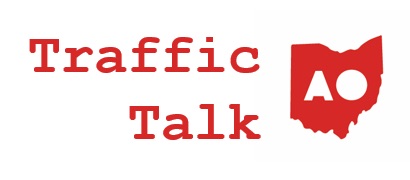
Traffic Talk
This online series ran from May 2020 to March 2021 as a response to the COVID-19 pandemic. It provided a safe and supportive space for a wide range of people to discuss sensitive and advanced topics related to human trafficking. Session materials consist of brief expert presentations, written, video, and audio resources, and dialogue prompts that emphasizes listening and understanding.
Traffic Talk fostered a welcoming, open, and comfortable environment to help participants appropriately discuss such difficult topics. All moderators of the Traffic Talks were trained in dialogue facilitation.
Feel free to use our model and materials for your own discussion/dialogue groups. Choose a topic below and get started!
Past Presentations
May 27th, 2020
Human trafficking is a commercial crime that consists of a supply-side and demand-side, essentially running as a business. Human trafficking prevention strategies must focus on reducing the demand for goods and services provided by human exploitation and trafficking. Effective demand reduction efforts must take into account both individual-level and societal factors and strategies.
View Presentation
June 24th, 2020
The connection between race and human trafficking exists in various forms. Racial disparities among both child and adult victims of human trafficking illustrate the effects of systemic racism. Two important aspects to delve into are how racial stereotypes impact victimization, and what it means to be a good ally.
View Presentation
July 22nd, 2020
The narratives that society upholds about human trafficking can have a severe impact on victims. By analyzing the case of Cyntoia Brown, we can see how common stereotypes reinforce the idea of a ‘perfect victim’ and how race plays into this concept as well. Also, it is extremely important to notice the widespread appropriation of human trafficking victims’ stories and to work to avoid participating in this misrepresentation.
View Presentation
August 26th, 2020
One prominent connection between race and human trafficking can be seen in the many forms of forced labor/labor trafficking. The migrant farmworker system in the U.S. is rooted in our history of colonialism and slavery, of which some parts are inherently unjust and racist. Those working in situations of forced labor, such as on farms or in prisons, are exploited for their vulnerabilities which often includes their race.
View Presentation
September 30th, 2020
The criminal justice system plays a major role in how human trafficking victims and perpetrators are treated. Law enforcement has an especially important responsibility to address human trafficking in the various different interactions they have with victims. It is also important to consider how alternatives can be used to create a more holistic approach to helping victims.
View Presentation
October 28th, 2020
Forced labor and slavery exist throughout the supply chains of countless industries. We must think about how corporations, governments, and consumers all support the use of slavery in every section of supply chains. Whose responsibility is it to ensure that goods are produced ethically and sustainably? What can we, as consumers, do to help?
View Presentation
February 24, 2021
All economics assumes economic agency—individuals making choices about savings, work, and purchasing. But, human trafficking means someone else is making those decisions. This creates ripples through an economy/society that imposes costs on victims and the economy as a whole. Most practitioners think of slavery as a criminal justice or social issue—not as an economic, sustainability, development issue, or investment concern. So it’s not considered as a core issue by economic decisionmakers. How can you take action to help make the systemic changes that are needed to achieve sustainable development and prevent human trafficking?
View Presentation
March 24, 2021
Trafficking of children and teens is more common than most people realize...and our prevalence data is only as good as our ability to recognize possible victims. The presentation goes through commonalities of children and adolescents being trafficked and how to better understand how they become victims.
View Presentation
